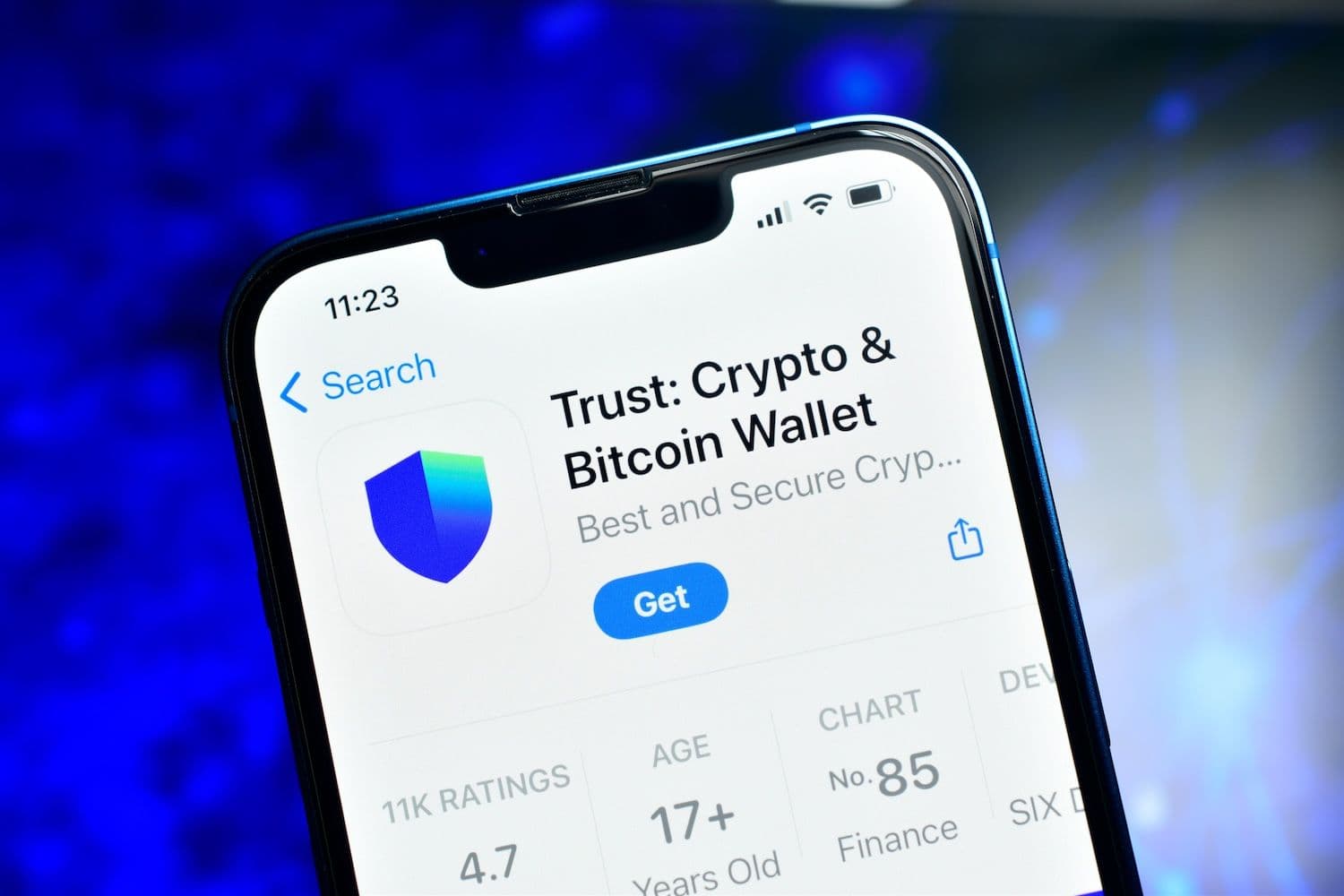Trust Wallet, the self-custodial cryptocurrency platform owned by former Binance CEO Changpeng Zhao, has integrated tokenized US stocks and exchange-traded funds into its global platform. The integration represents a collaboration between Trust Wallet, decentralized finance platform Ondo Finance, and exchange aggregator 1inch to bring traditional financial assets onto blockchain infrastructure.
What to Know:
- Trust Wallet partnered with Ondo Finance and 1inch to offer tokenized stocks and ETFs globally through Ethereum smart contracts
- Trading operates during US market hours only (Monday-Friday, 1:30-8:00 PM UTC) and excludes users in the US, UK, and European Economic Area
- The integration combines self-custody wallet technology with real-world asset tokenization, though underlying assets remain with traditional custodians
Partnership Framework Powers Traditional Asset Access
Trust Wallet announced the tokenized asset integration following its June disclosure about plans to introduce real-world assets to the platform. CEO Eowyn Chen described the move as advancing global financial accessibility through blockchain technology.
"Integrating RWAs into self-custodial wallets is an important step in making global finance more open and efficient," Chen stated. She emphasized blockchain's role in democratizing financial market access and creating a more inclusive financial future.
The collaboration assigns specific roles to each partner organization. Ondo Finance supplies tokenized real-world assets including stocks, ETFs, and bonds issued on Ethereum through smart contracts. 1inch Fusion provides liquidity and pricing mechanisms for efficient asset swaps.
"In short, Ondo brings the assets, 1inch powers the rails, and Trust Wallet makes it accessible in self-custody, acting as a platform or tool," explained Trust Wallet marketing head Sami Waittinen.
The company plans to integrate additional RWA providers and liquidity sources over time to expand user access.
Trading Restrictions And Technical Limitations
The tokenized asset feature operates under significant geographical and temporal restrictions. Trust Wallet's website confirms RWA tokens remain unavailable in the United States, United Kingdom, and European Economic Area. Users attempting transactions from restricted regions will face automatic swap failures.
Trading follows traditional US market schedules from Monday through Friday, operating between 1:30 PM and 8:00 PM UTC. Outside these hours, the platform tracks user interest for potential future features including 24-hour trading and limit orders.
Trust Wallet positions itself among the first platforms to combine self-custody wallet technology with tokenized real-world assets.
Self-custody enables users to maintain independent asset control without centralized oversight. Tokenized RWAs serve as digital ownership certificates for real-world properties.
"Tokenized RWAs are a natural next step as they unlock traditionally gated assets like stocks or ETFs, and make them accessible to anyone, anywhere, from their own wallet," Waittinen said. The integration aligns with Trust Wallet's mission of promoting ownership freedom and providing secure access to cryptocurrency and Web3 opportunities.
Technical Implementation And Security Considerations
Hardware wallet company Trezor analyst Lucien Bourdon outlined two perspectives regarding the combination of self-custody and real-world assets. He noted that blockchain-supporting RWA tokens can be stored securely on any compatible self-custodial hardware wallet.
From a technical standpoint, wallets treat RWA tokens identically to other digital tokens. Examples including gold-backed tokens and Treasury-backed tokens already utilize this storage method. However, ownership structures differ significantly between cryptocurrencies and tokenized assets.
"With cryptocurrencies, your keys equal direct ownership of the asset," Bourdon explained. "With real-world assets or stablecoins, your keys secure the token, but the underlying asset remains with an issuer or custodian."
This distinction creates a technical functionality where self-custody operates effectively while requiring continued trust in the issuing entity. The arrangement maintains the security benefits of self-custody while preserving traditional custodial relationships for underlying assets.
Key Terms And Market Context
Real-world assets (RWAs) refer to traditional financial instruments like stocks, bonds, and ETFs that have been converted into digital tokens on blockchain networks. These tokens represent ownership claims on underlying assets while enabling blockchain-based trading and storage.
Self-custody wallets allow users to maintain direct control over their cryptocurrency private keys rather than relying on centralized exchanges or custodial services. This approach provides enhanced security and independence but requires users to manage their own key storage and backup procedures.
Decentralized finance (DeFi) platforms utilize blockchain technology to recreate traditional financial services without centralized intermediaries. Exchange aggregators like 1inch optimize trading by finding the best prices across multiple decentralized exchanges simultaneously.
Closing Thoughts
Trust Wallet's integration of tokenized stocks and ETFs marks a significant development in bringing traditional financial assets to self-custodial platforms. The partnership with Ondo Finance and 1inch demonstrates the evolving intersection between decentralized finance and conventional securities markets, though geographical restrictions and custodial dependencies remain limiting factors.



